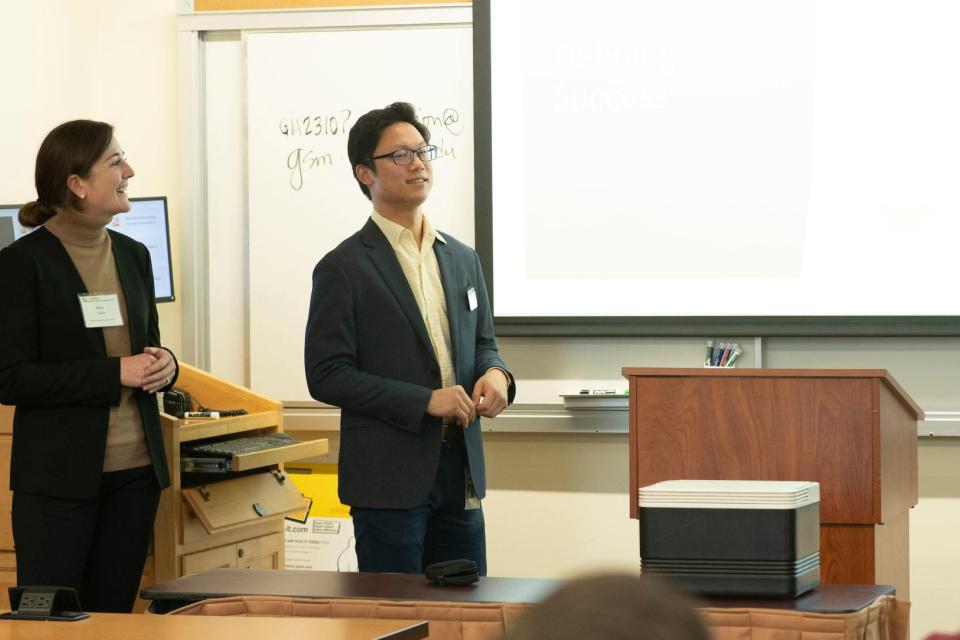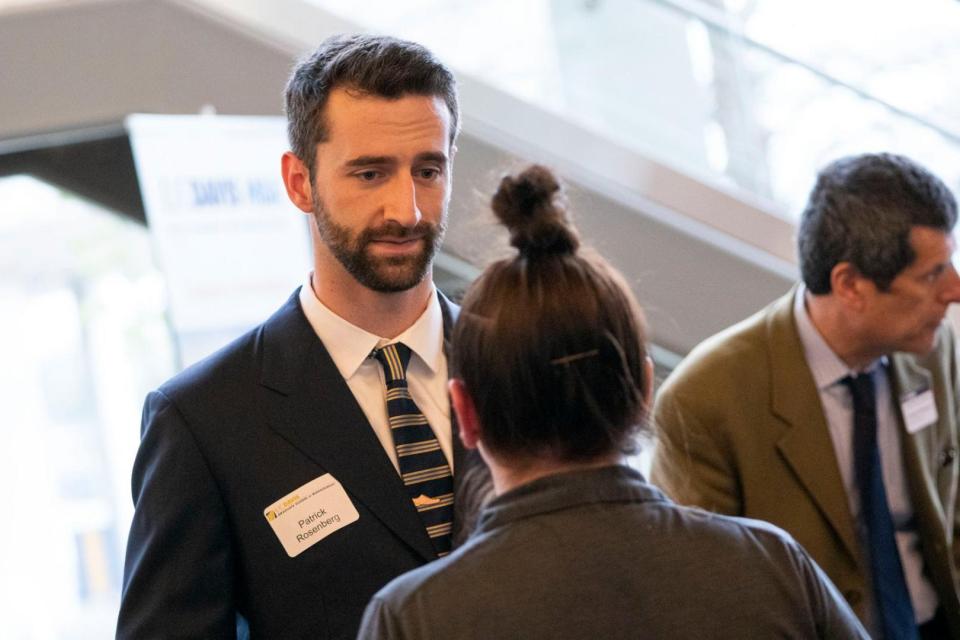My Passion: Harnessing Tech to Unlock the Mystery and Power of Food
Food & Ag Industry Immersion brings science and business together
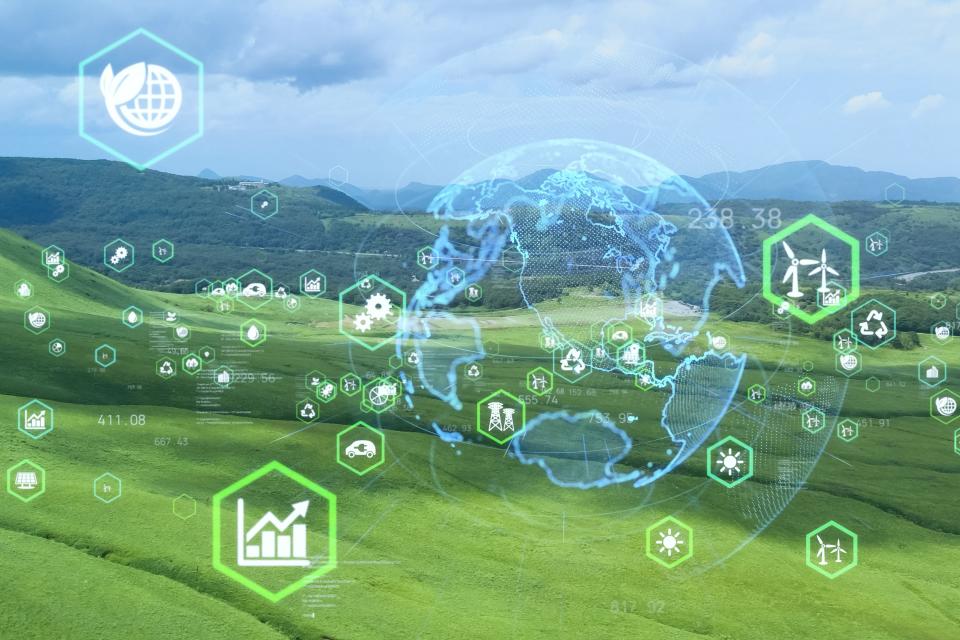
(Editor’s note: Justin Siegel, UC Davis associate professor of Chemistry, Biochemistry & Molecular Medicine and faculty director of the UC Davis Innovation Institute for Food and Health, serves as our Ciocca Visiting Professorship in Innovation & Entrepreneurship. He has been a guest speaker in our Food and Agriculture Industry Immersion. He’s also a UC Davis alumnus.)
Can chocolate cake with a big scoop of vanilla ice cream become healthy? I actually believe so, and that is often what I tell my kids I am working on.
Well, that and making new colors, fighting food intolerances, removing toxins and building delicious foods to help Grammy and Bapa live longer and healthier lives.
These goals are not going to be achieved through traditional approaches.
With groundbreaking advances for technologies developed for the energy, medical and information technology sectors, we now have the tools available to us to unlock the mystery and power of food.
Dinner Plate Discovery
Having grown up in the Bay Area during the industrial biotech and information technology renascence, with my father leading many of the world’s most notable biotech companies (e.g. Applied Biosystems, Illumina, and more), it was common at the dinner table to discuss how to make an impact in the world through technology.
While I thought about making a difference using technology through new energy paradigms or medicines, it never dawned on me that the biggest impact I could have is likely through what was on the plate at the dinner table itself. That changed upon starting my career at UC Davis in 2012.
My journey into food innovation at UC Davis began with a conversation with an undergraduate—let’s call him Peter—about trying to build enzymes to fight milk intolerances. I knew nothing about milk, other than some forms came from cows. Luckily for us, right across the street was the office of a world expert in milk, Professor and Food Chemist Bruce German. Peter and I chatted with Bruce and my eyes opened to the potential of the food system.
While so obvious in hindsight, I never thought of food as our most powerful medicine, our most accessible tool for climate change, our most impactful tool for social justice and our most engaging tool for education.
Immediately my research lab began to pivot, working towards harnessing the potential of our food system from the molecular level.
Here’s what we found:
- Medicine: Food is the primary factor responsible for one’s metabolic health—the system of chemical reactions that sustain life for which the eleven systems of the human body all depend on. It is estimated that less than 15% of Americans are metabolically healthy.
- Climate Change: It is commonly estimated, albeit highly debated, that roughly 25% of greenhouse gas emissions come from the food system. Yet we still continue to throw away roughly 40% of food due to system inefficiencies and spoilage.
- Social Justice: Research has made it clear that access to safe and nutritious food at a young age is necessary to avoid physical and mental stunting, without which a person can never reach their full potential. Furthermore, the ability to be productive and carry-out high-level tasks is severely limited if one is poorly nourished, which is often the case for families with limited resources.
- Education: The deep cultural and personal connection each of us has to food makes it a topic that everyone can relate to, if it is framed in an accessible manner. However, food also represents the most complex problems in terms of economics, chemistry, health, climate, and psychology. Allowing STEM student engagement at all levels to these advanced topics that they have a personal connection too will contribute to new solutions.
While I was instantly hooked by the scientific and educational aspects of our food system, what really stuck with me is the impact and barriers to impact.
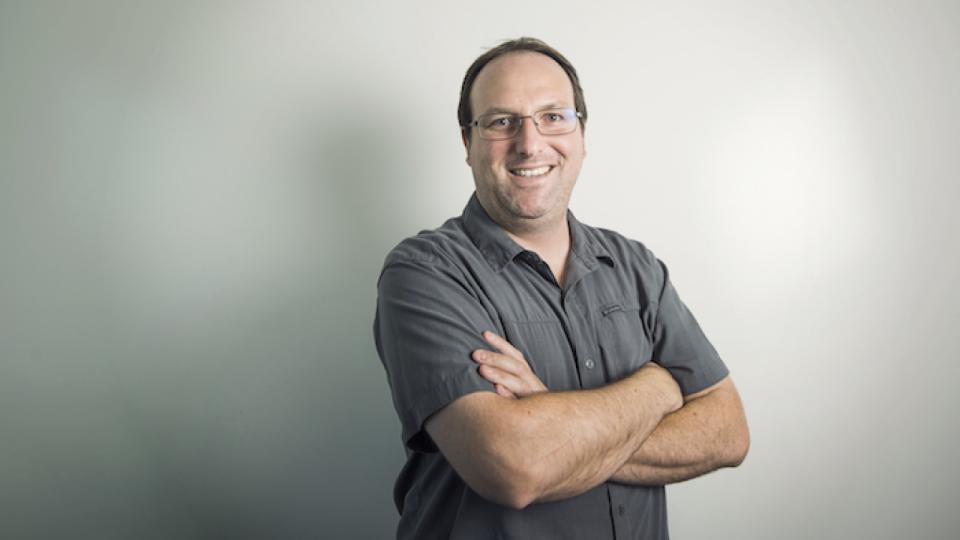
Going to Market
Unlike the energy, information technology, and medical sectors, there is not a robust and well-established path-to-market for a technological advance to improve a food product into a successful commercial product.
The low-margin, high-volume, time-sensitive, distributed system coupled with limited meaningful health or sustainability claims presents truly interesting business challenges. Then I met Harold Schmitz, the former chief scientific officer of Mars Incorporated and my predecessor as the Arthur and Carlyse Ciocca Visiting Professor in Innovation and Entrepreneurship.
With the UC Davis Graduate School of Management as a cornerstone, Schmitz has been working towards building an ecosystem to address this very challenge.
Building a Talent Pipeline Through Industry Immersions
Our first mission was to streamline the innovation pipeline from industrial-recognized problems into technological solutions through programs such as the Innovation Institute for Food and Health, which I co-founded with Schmitz.
Another key element is a talent pipeline to begin training innovators at the interaction of business and science. The Graduate School of Management’s interdisciplinary Food & Agriculture Industry Immersion course, which Schmitz helped establish, tackles the complex forces that are shaping and driving the industry from the perspective of those on the front lines.
This immersion brings together MBA students and Ph.D. students, connected by a shared interest in our food system, and provides a deep engagement with C-suite executives on a weekly basis.
With my eyes opened and the foundational ecosystem laid out by my predecessor, the question lies, where to now? My answer: It’s time to hit the gas.
Transforming Our Food Ecosystem
The problems in our food system are clear.
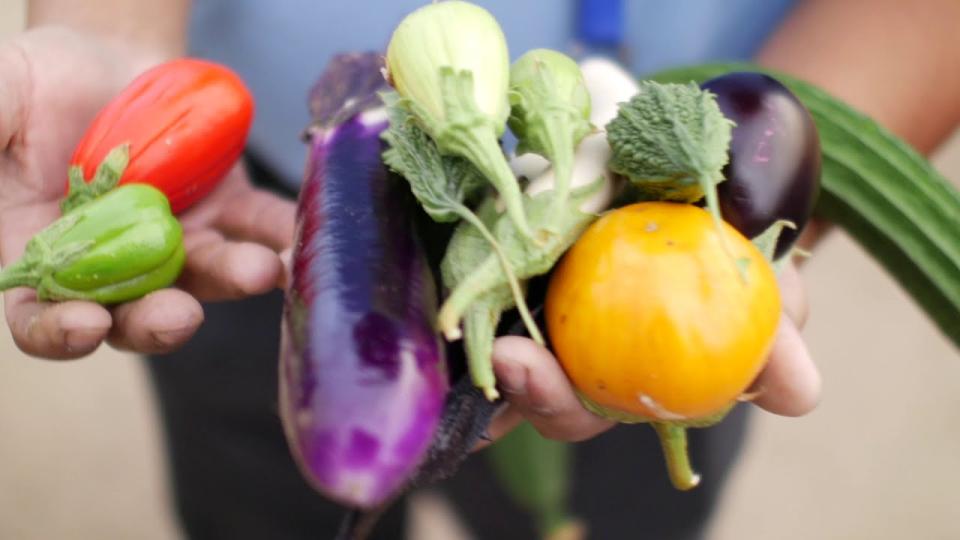
But we have the data science, analytical and genomic technologies to understand and build accessible foods to help us reach our metabolic health goals and promote planetary health. The teams to bring these technologies to market are being put in place. The only thing left to do now is act.
Over the last two years Harold, Bruce and I—with the incredible collaboration and support of many others (including my Dad, Bapa)—have already launched five companies in this direction. More than a dozen more are in the wings.
My goal as the new Ciocca Visiting Professor in Innovation and Entrepreneurship is to further accelerate this change through the development of new innovation programs, new student opportunities, and new means of translation, all enabled by meaningful engagement across UC Davis and through the broader Graduate School of Management network
